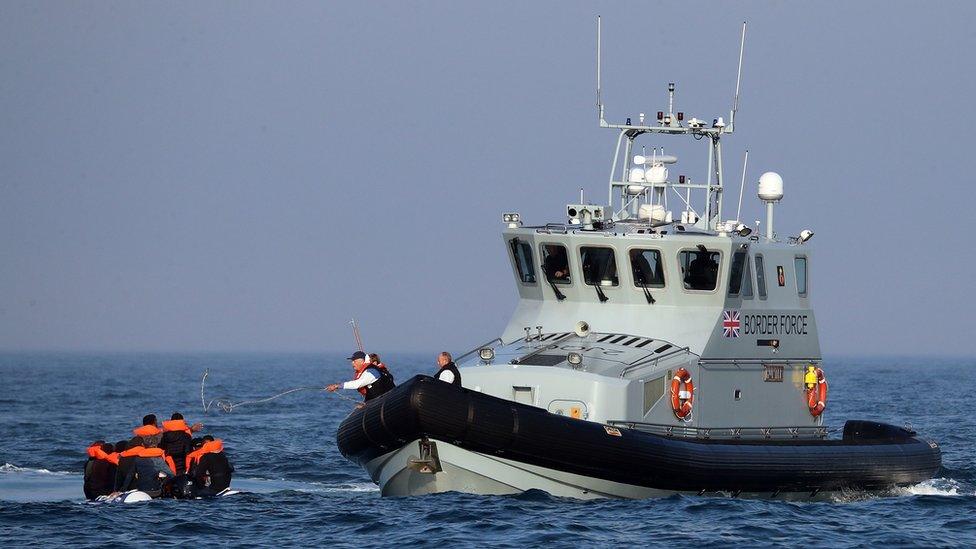Napier Barracks: Red Cross demands closure of ex-military asylum sites
- Published
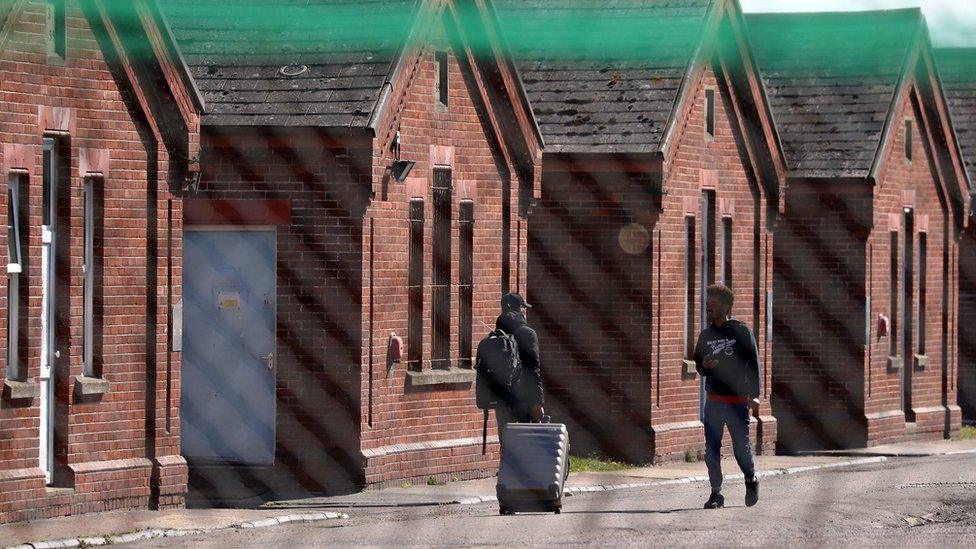
The Napier Barracks site has previously been described as run-down and filthy
The British Red Cross has called for ex-military asylum sites such as Napier Barracks to close immediately.
The charity said the use of barracks to house asylum seekers can re-traumatise people who have fled war.
A report said people had experienced flashbacks of violence from living inside barbed wire fences.
A Home Office spokesman said temporary accommodation had been necessary during the pandemic and the department always took wellbeing seriously.
The charity's report on asylum accommodation at military sites and in hotels claimed there were delays in the system, a failure to provide basic items such as clothing and financial support, ineffective health screening and barriers to accessing healthcare.
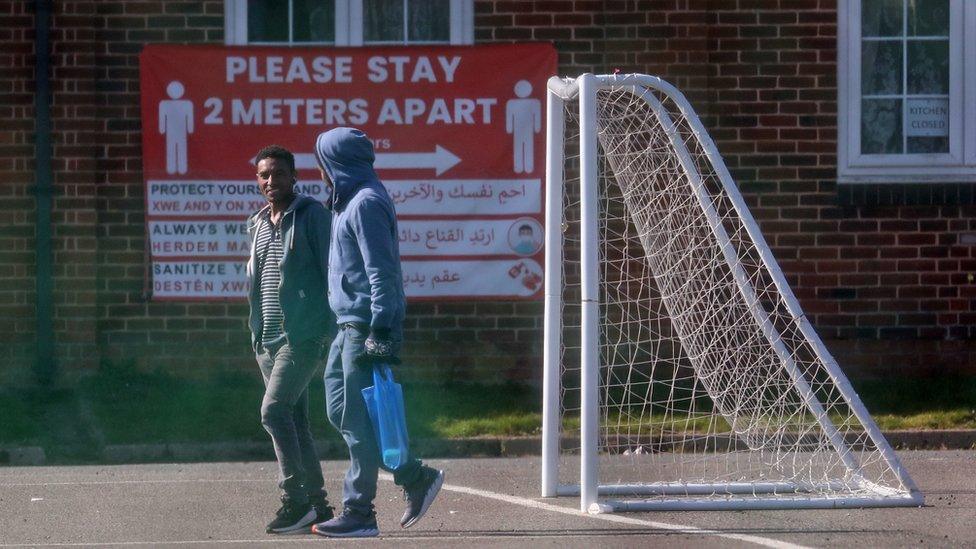
The British Red Cross also said social distancing was impossible with shared facilities at barracks sites
It said those living in repurposed barracks including Napier, in Kent, and the Penally Camp in Wales and RAF Coltishall, Norfolk, which have both now closed, felt "unsafe, unwell and imprisoned".
Experts including the Royal College of Psychiatrists and the British Medical Association had maintained military barracks were not appropriate for people who may be survivors of trafficking, torture and imprisonment, it added.
It said shared facilities made social distancing impossible during the pandemic.
Nearly 200 people tested positive for Covid-19 this year at Napier Barracks, after an outbreak - which the Home Office has since said is over.
Calling for an end to the use of military sites, Mike Adamson, British Red Cross chief executive, said, "We have heard from people without basic items like clean clothing, staying in rooms in disrepair, or with serious medical needs that have been ignored."
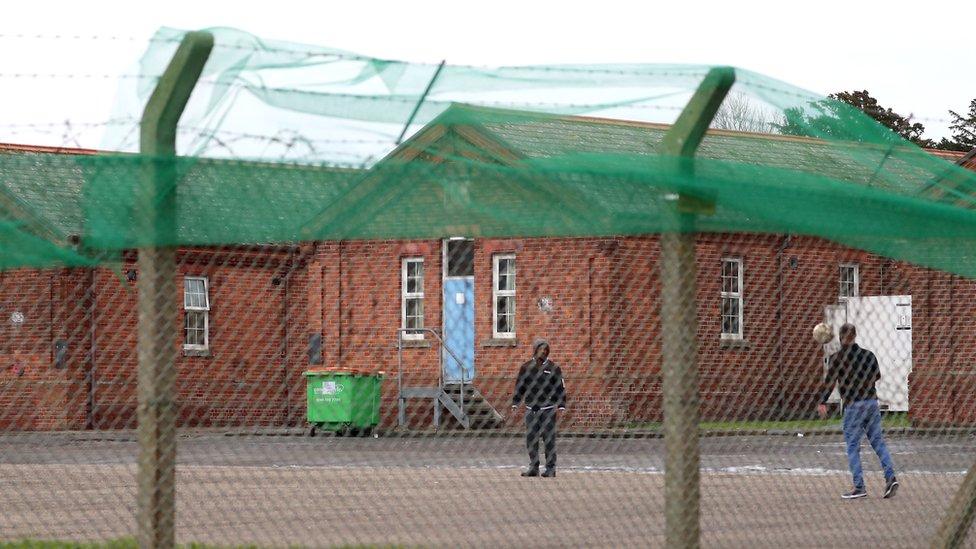
The report said former military sites could re-traumatise people
The Home Office said people were either in full board accommodation and receiving three meals a day, or in self-catered accommodation with a weekly payment to cover food and other essentials.
It said asylum seekers had access to legal, financial and health support, female staff were available, hotels were of the appropriate standard, nutrition met NHS guidelines and plans were under way to speed up asylum decisions.
It also said work was under way to move people out of hotels and consultation was being carried out on plans for a reception centre model.
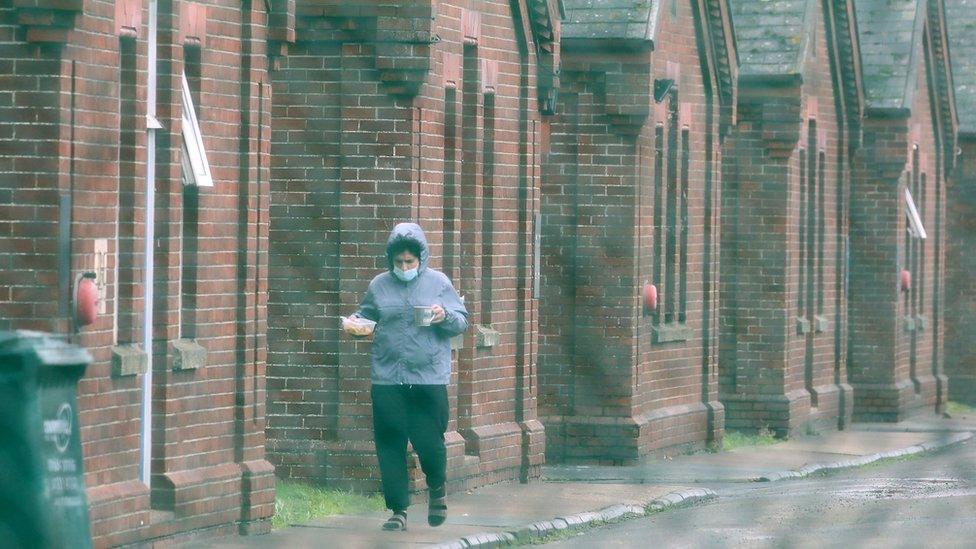
The use of Napier was discussed in a Westminster Hall debate
The report, published on Tuesday, coincided with a Westminster Hall debate about the effectiveness of asylum accommodation and support for asylum seekers.
Labour MP Neil Coyle, leading the debate, said: "No-one could have been prepared for the horrors of the Napier Barracks."
He said the use of Napier "fails people fleeing torture and genocide, war and persecution, but also fails the taxpayer, fails our historic contribution and British tradition of not passing by on the other side of the street".
Mr Coyle also said the use of Napier would bring further costs to the taxpayer because of ongoing legal cases.
Kevin Foster, minister for future borders and immigration, said: "All the basic needs of asylum seekers are met including their welfare needs.
"The site is catered with three meals per day and options are provided which cater for special dietary, cultural or religious requirements. Additional meals are provided as required.
"There is power, heating, water, access to phones and support items such as toiletries are provided along with access to laundry facilities."

Follow BBC South East on Facebook, external, on Twitter, external, and on Instagram, external. Send your story ideas to southeasttoday@bbc.co.uk.
Related topics
- Published20 April 2021
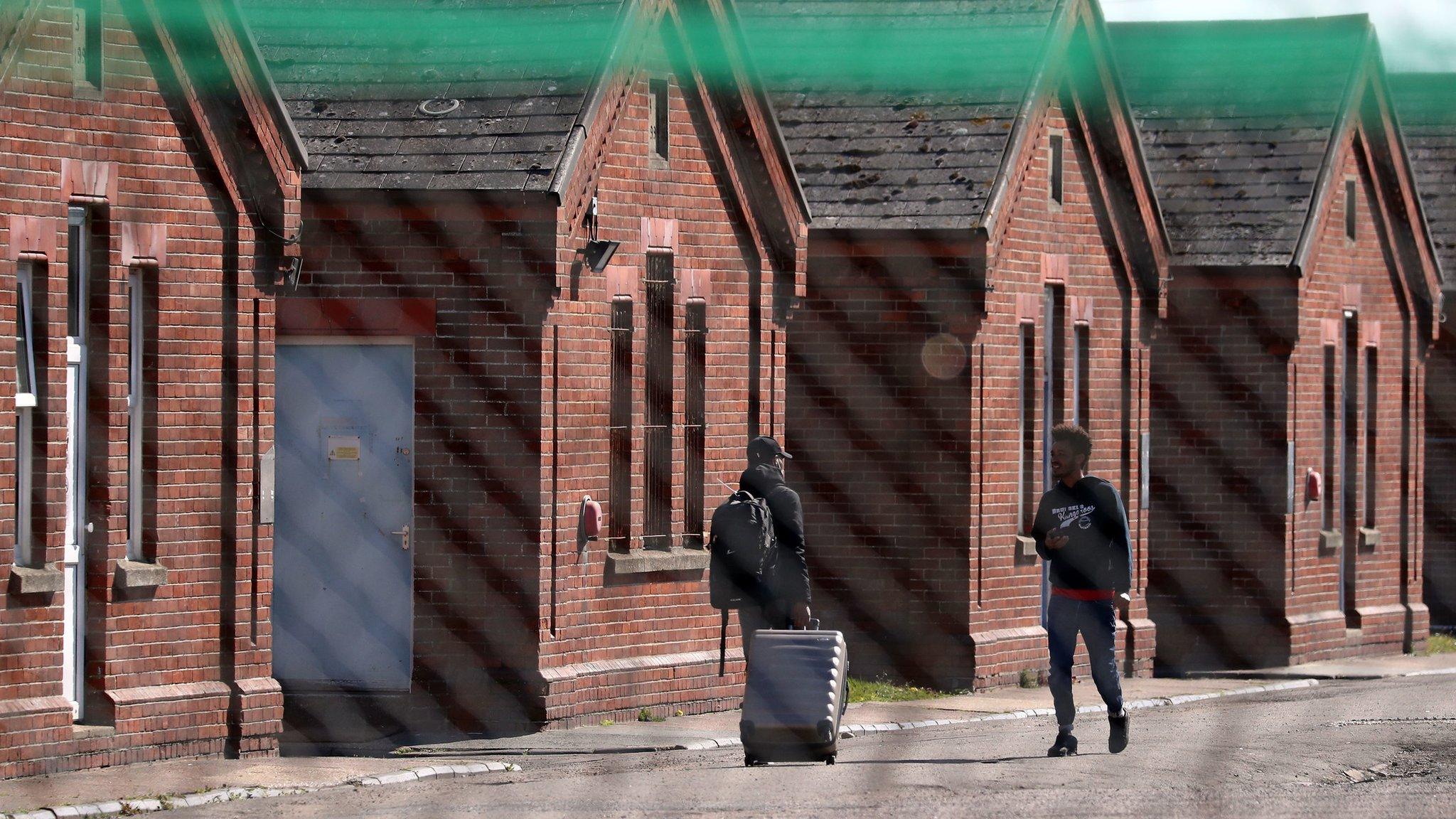
- Published13 April 2021
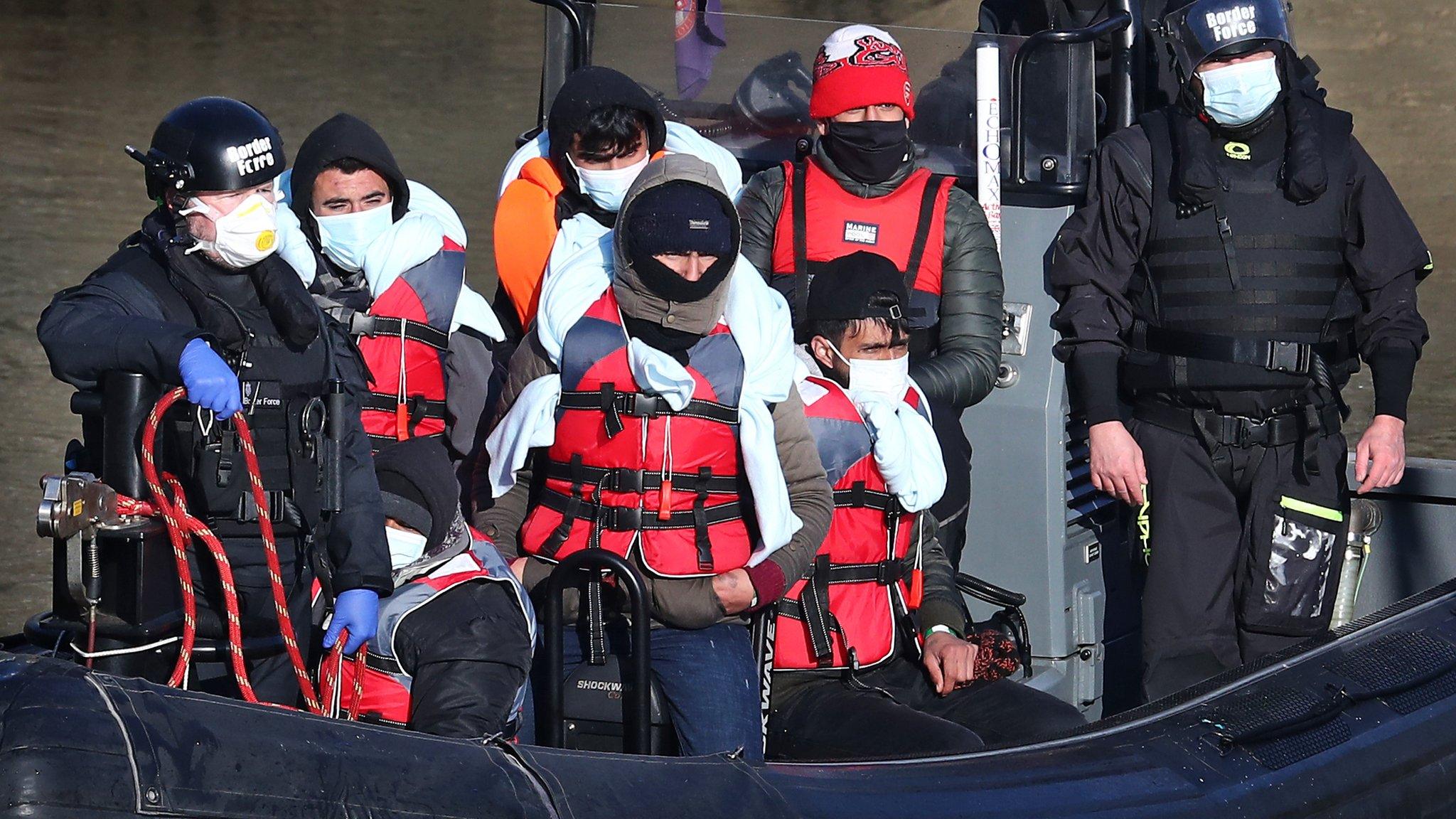
- Published24 February 2021
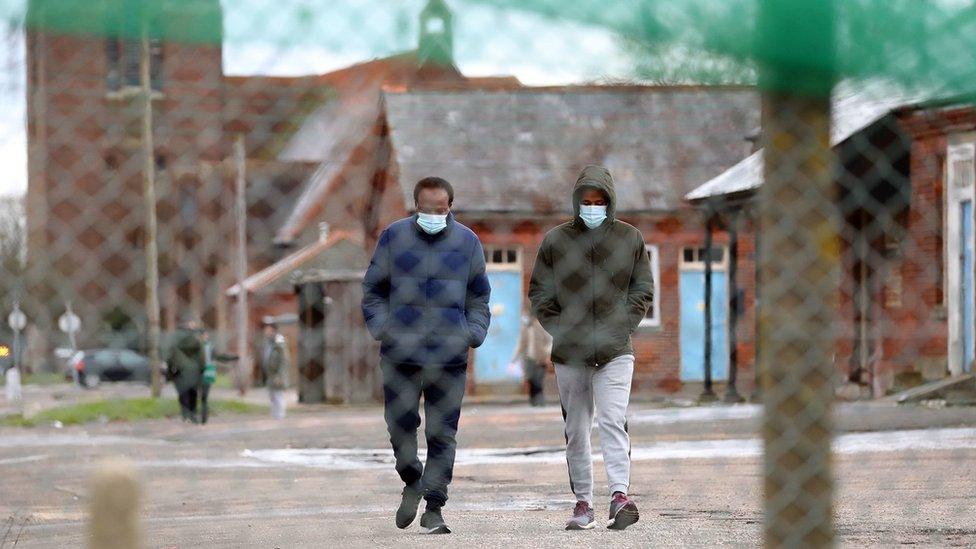
- Published8 March 2021
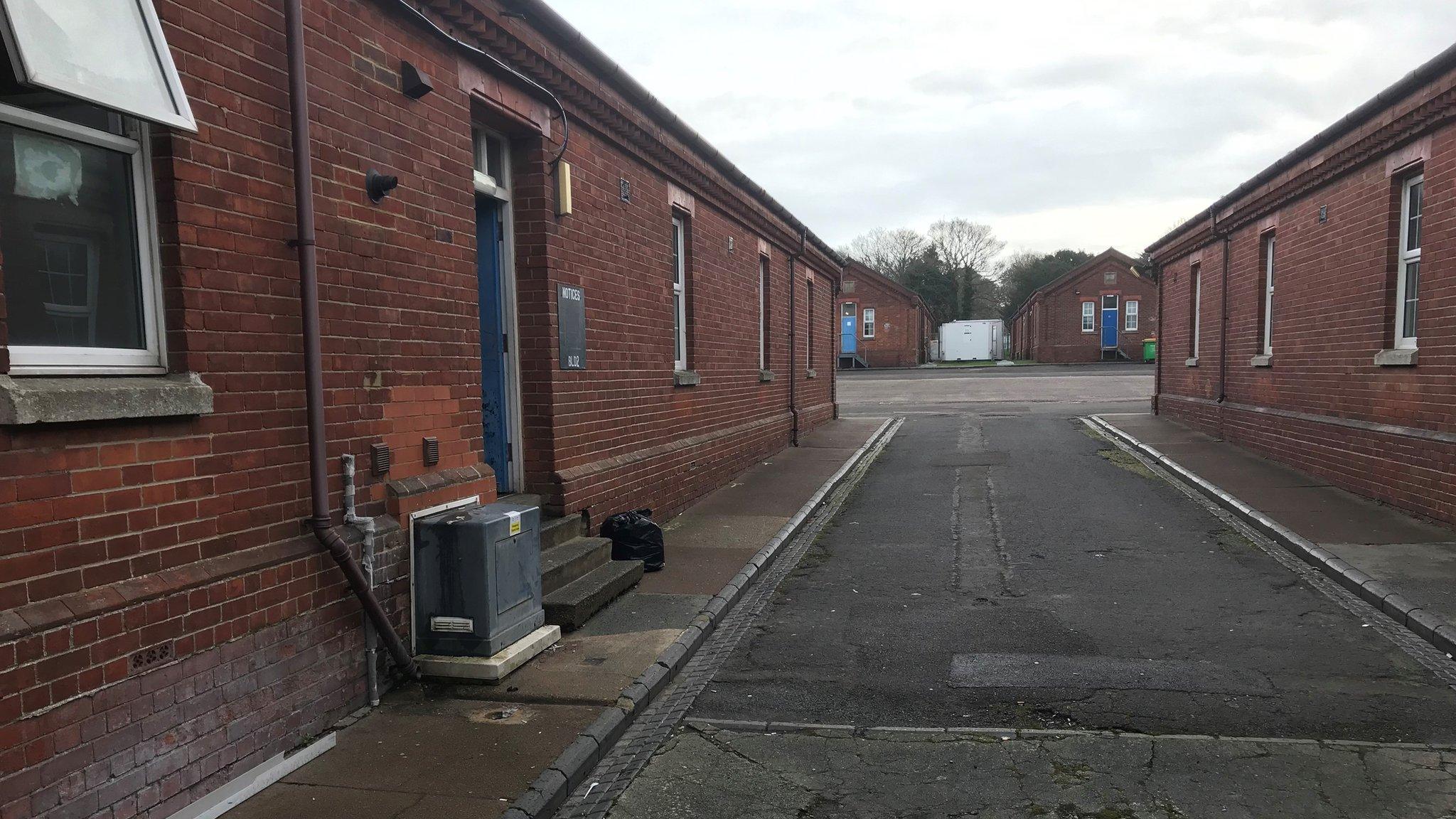
- Published26 November 2018
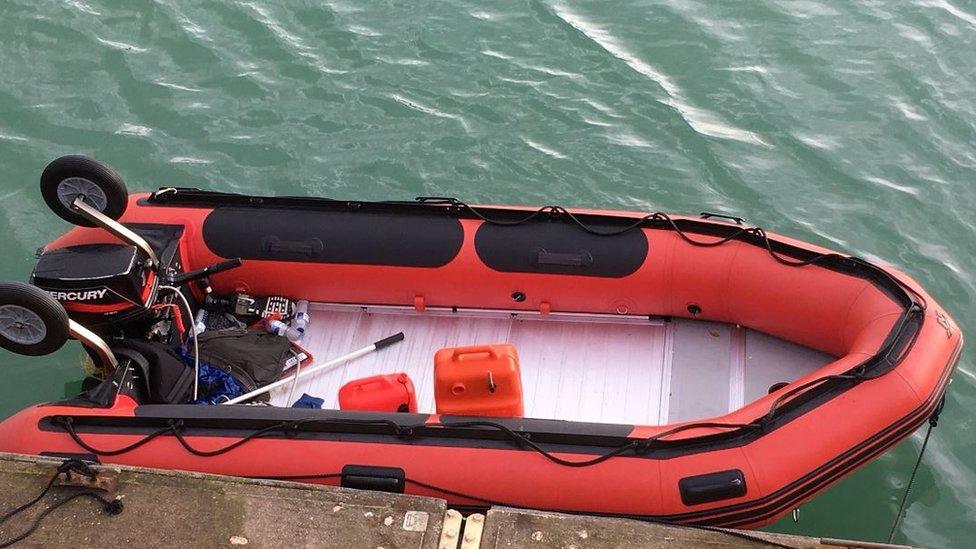
- Published28 October 2020
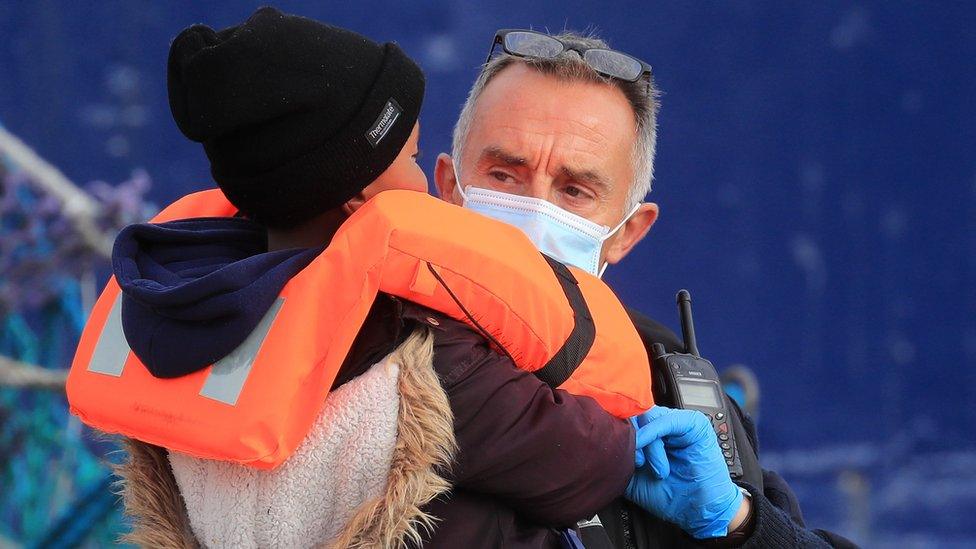
- Published20 August 2020
